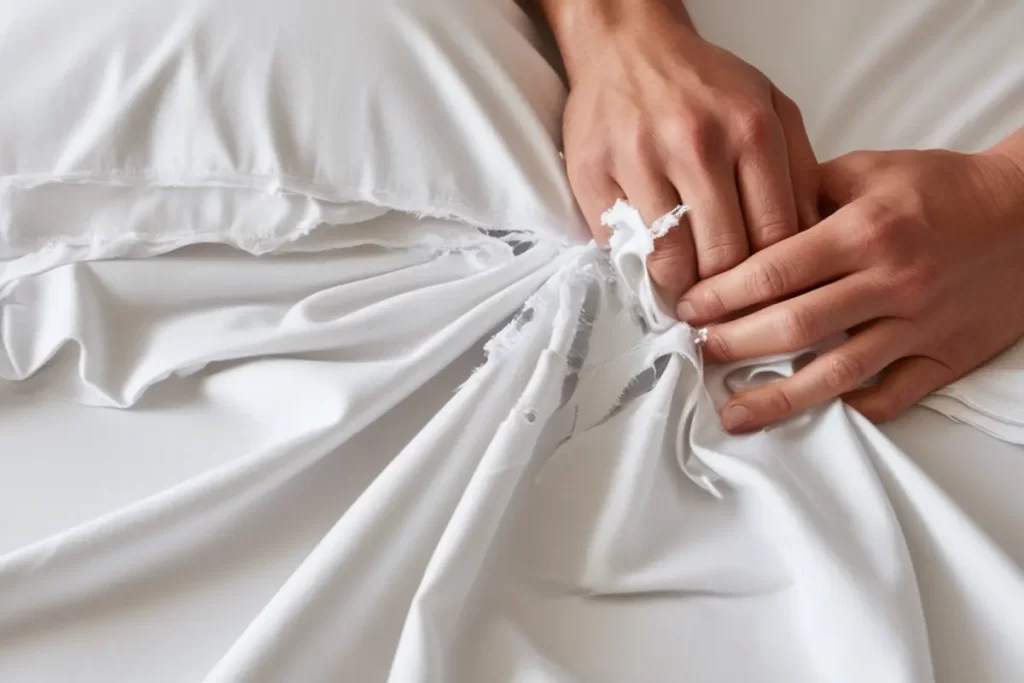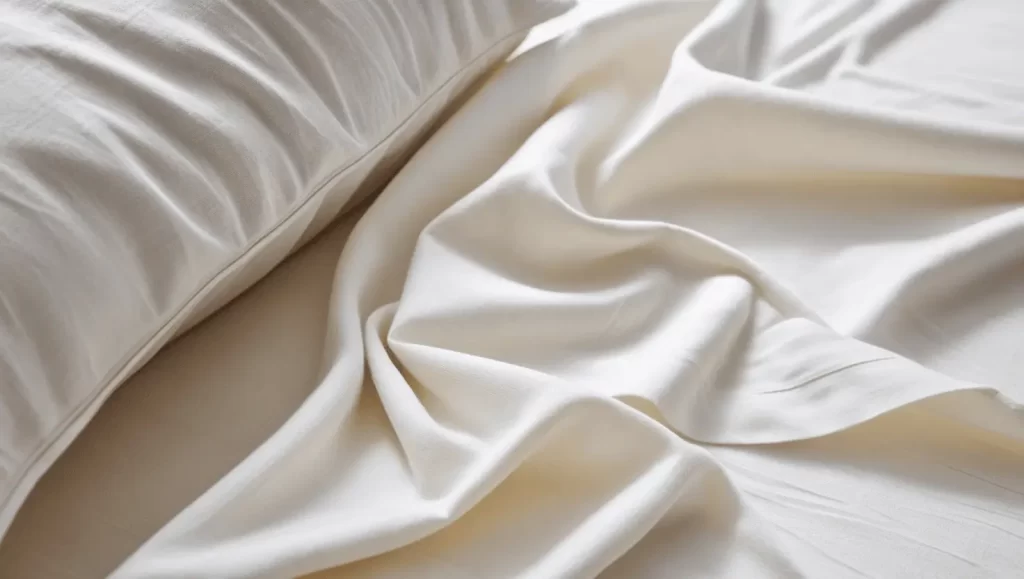Bed sheets are an essential part of our sleep experience, and while many of us pay close attention to things like mattress quality or pillow type, the importance of good, durable sheets is often overlooked. Over time, even the highest-quality sheets will start to show wear and tear, signaling that it’s time for a replacement. But when exactly should you replace your bed sheets? Below, we explore four key signs that indicate it’s time for new sheets, along with expert insights into how to care for your bedding to make it last as long as possible.
1. Rips and Tears: A Clear Sign of Wear and Tear
If your bed sheets are starting to show rips, tears, or even frayed edges, it’s a clear sign that they’ve reached the end of their lifespan. Holes and tears may begin as small imperfections, but they will only get larger over time, compromising the comfort and durability of your sheets. While some may be tempted to repair torn sheets, it’s often best to invest in a new set.
What You Can Do With Old Sheets
Instead of discarding torn sheets entirely, consider repurposing them. Old sheets can be transformed into cleaning rags for household tasks or even used as protective covers for furniture when painting. This way, you can extend their use while keeping your space tidy.

2. Stains That Won’t Go Away: Time for a Fresh Start
Stains are inevitable, especially if you eat in bed or have pets, but persistent stains that won’t wash out are another telltale sign that your sheets are due for a replacement. Stains not only affect the appearance of your bedding, but they can also harbor bacteria and dirt, making your bed less hygienic.
How to Prevent Stains
To keep your sheets fresh for as long as possible, act quickly when spills or accidents occur. Washing stained sheets immediately after an incident can prevent the stain from setting in permanently. Also, consider using a stain-resistant fabric spray to protect your bedding.
3. Thinning Fabric: Losing Comfort and Durability
Over time, bed sheets naturally thin due to repeated washing and use. When the fabric of your sheets becomes thin, it can feel rough or uncomfortable, reducing the overall quality of your sleep. Thinning sheets are also more likely to tear or wear out faster.
Why Thinning Happens
Frequent washing, exposure to body oils, sweat, and friction from tossing and turning all contribute to the thinning of sheet fabric. While high-thread-count sheets may last longer than low-quality ones, even premium sheets will eventually show signs of wear.

4. Discomfort: When Your Sheets No Longer Feel Soft
Comfort is paramount when it comes to bedding. If your sheets feel rough, scratchy, or simply uncomfortable to sleep on, it’s time to let them go. Given that we spend about a third of our lives in bed, it’s essential to sleep on soft, cozy sheets that contribute to a restful night’s sleep. A drop in comfort may indicate the fibers have broken down, or that the material has aged beyond repair.
How to Choose the Right Sheets for Comfort
When replacing your sheets, prioritize materials like 100% organic cotton, linen, or bamboo, which are known for their softness and durability. These materials also offer breathability, which is ideal for those who tend to sleep hot.
5 Factors That Affect How Long Your Sheets Last
Several variables impact the longevity of your bed sheets. Here are the top factors that bedding experts recommend keeping in mind to ensure your sheets last as long as possible:
Frequency of Use
As expected, the more often you use your sheets, the sooner they will show signs of wear. If you sweat a lot during the night or have pets that sleep on the bed, your sheets will experience more frequent wear and tear.
Type of Sheets
Different types of sheets wear at different rates. For example, fitted sheets and pillowcases tend to wear out faster than flat sheets or duvet covers, as they come into more direct contact with your body oils and sweat.
Fiber Type
Sheets made from 100% organic fibers, such as organic cotton or bamboo, tend to last longer and are better for the environment. According to bedding expert Lainey Hollis, these natural fibers help promote longevity in your bedding.
Weave Quality
The weave of your sheets also plays a role in their lifespan. A tighter weave, such as a four-over-one-under weave, offers more durability and softness, which means your sheets will last longer and stay comfortable even after multiple washes.
Care and Maintenance
How well you care for your sheets significantly impacts their longevity. Follow the care instructions on the label, wash them in cool water, and avoid harsh chemicals like bleach that can damage the fibers over time.
How to Make Your Sheets Last Longer
By taking some simple steps, you can maximize the life of your bed sheets and keep them in good condition for years:
Alternate Between Sheet Sets
Instead of using the same sheets every week, rotate between at least two or three different sets. This helps spread out the wear and tear, allowing each set to last longer.
Follow Care Instructions
Carefully follow the manufacturer’s care instructions. Wash your sheets according to their specific guidelines, which often suggest cold water and gentle cycles to preserve the fibers.
Dry Sheets Correctly
When drying your sheets, avoid overloading the dryer. Make sure there’s enough space for the sheets to tumble freely, which helps prevent wrinkles and ensures even drying.
Remove Stains Promptly
If you spill something on your sheets, address the stain as soon as possible. Allowing stains to set will make them harder to remove, and they can permanently damage your sheets.
FAQs
What is the Average Lifespan of Bed Sheets?
On average, bed sheets should be replaced every two to three years. However, this can vary based on the quality of the sheets, frequency of use, and how well they are maintained.
Do Expensive Sheets Last Longer?
Sheets made from higher-quality materials, such as Egyptian cotton or linen, generally last longer due to their durability. However, proper care and maintenance are crucial in extending the life of your sheets.
Can You Repurpose Old Sheets?
Yes! Old sheets make excellent cleaning rags, and they can also serve as protective coverings when painting or storing furniture.

